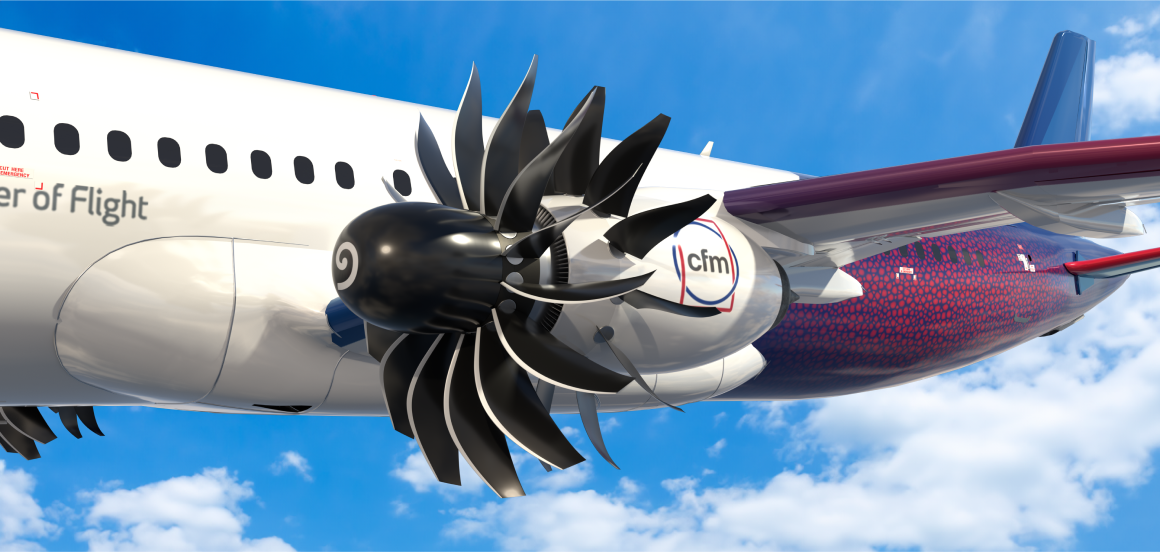Revolutionary Innovation for Sustainable Engines (RISE)
Change the engine, change the future
Building on four decades of investment that made our engines quieter and more efficient, the RISE Program is accelerating the development of uncompromising new propulsion technologies that will pave the way for the next generation of aircraft and a more sustainable future.

RISE Program
Our technology demonstrator for a more sustainable future
Technologies matured as part of the RISE Program will serve as the foundation for the next CFM engine generation that could be available by the second half of the next decade. The program goals include improving fuel efficiency by more than 20 percent compared to today’s most efficient engines, as well as ensuring compatibility with Sustainable Aviation Fuels (SAF) to provide further emissions reductions.
Key figures
350+
Tests completed
100%
SAF compatibility
2k+
Engineers dedicated to this project

The CFM RISE Program is all about pushing the technology envelope, redefining the art of the possible, and helping to achieve more sustainable long-term growth for our industry